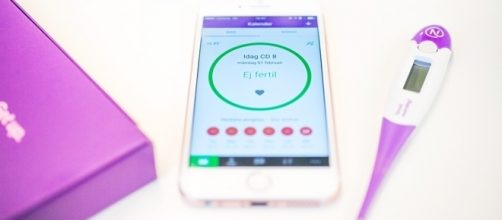Hormone-free Birth Control options have been few or far between, and the pill has always reigned supreme. That might just be changing now, thanks to Natural Cycles, an algorithm-powered app that allows women to precisely track their fertile days - no pill, patch, or painful insertion procedures required. According to a recent study that followed more than 20,000 women, Natural Cycles is 99 percent effective compared to the pill's 91 percent.
Preventing - or planning - pregnancy au natural
Elina Berglund, the Swedish nuclear physicist behind Natural Cycles, saw a growing need in the marketplace for natural birth control that actually worked and didn't cost thousands of dollars.
Without the fancy algorithm and tracking software, fertility tracking isn't terribly complicated - a woman has symptoms, such as elevated temperature, when she's ovulating that can be observed over time.
Birth control methods that don't use synthetic hormones aren't just desirable because they don't require a prescription or an invasive insertion - they also preserve a woman's natural hormonal cycle that helps them maintain their sex drive and normal period. Considering that fewer Americans are having sex than ever, this really matters for some. Some women, on the other hand, just want to avoid the potential pitfalls of the pill.
An algorithmic upgrade on family planning
The cool thing about the app?
It doesn't just track ovulation - it also learns to predict it over time and accounts for the number of days live sperm can live inside the uterus. After taking her temperature in the AM, the app lights up with a green "not fertile" or a red "fertile." When it's used perfectly, Natural Cycles is effective 99 percent of the time. For reference, that's the same efficacy rate as getting an IUD or having your tubes tied.
It may be the first birth control app on the market, but Berglund and her team are careful to remind consumers that during fertile days, they still need to either use a condom or abstain from sex. The app and thermometer won't do much in terms of ensuring that an egg and sperm don't get together and canoodle; in reality, it's more a fertility tracking app than a contraceptive.
This helps more evenly distribute the responsibility of contraception, too - since some action is required by the man when the woman is ovulating to help make sure a baby isn't (or is if that's the goal) made. After all, condoms don't put on themselves.
The latest study conducted was the largest of its kind, and yielded surprisingly impressive results - it might just be time for the rest of us to take this science-backed all-natural method seriously.


